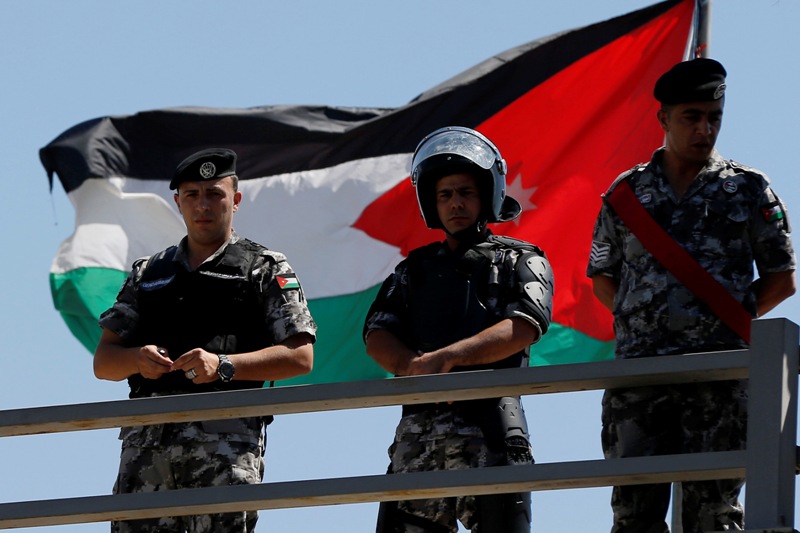The International Press Institute (IPI) today condemned the detainment of another Jordanian journalist and urged authorities in Jordan to stem the escalation in reporters’ arrests.
Jordan’s State Security Court (SSC) detained Al Ghad columnist Jihad Muheisen on Sunday, according to local press. Muheisen faces charges of undermining the regime and lèse-majesté over a Facebook post in which he criticised Jordan’s democratic process and said he would become a Shi’ite. Jordan’s penal code criminalises lèse-majesté and defamation.
Al Ghad and the Political and Parliamentary Affairs Ministry, where Muheisen worked as advisor, both fired the journalist following the Facebook post last month. The arrest occurred at Queen Alia International Airport as Muheisan returned from Lebanon.
Muheisan’s arrest came on the same day the SSC released Al Rai journalist Ghazi Mrayat on bail. Mrayat was detained on Wednesday for allegedly violating a gag order by writing about a thwarted terrorist attack. Although he was initially placed in custody for 15 days, the SSC released him after five days in detention.
The SSC, a martial law court, hears civilian cases concerning terrorism. Changes made in 2014 to the 2006 Anti-Terrorism Law make it difficult for journalists to avoid violating the law when they publish information about terrorist groups. Despite a commitment made by Jordanian Prime Minister Abdullah Ensour at IPI’s 2013 World Congress not to imprison journalists for speech-related issues or try them in the security court, the SSC has detained five journalists this year.
Two of the journalists, Hashim Al-Khalidi and Seif Obeidat, were detained in January for reporting claims on their website that an Iraqi prisoner would be released in a hostage deal. They were charged with aiding terrorism, and their website, Saraya, was blocked. The SSC reportedly released them on bail in March.
Jamal Ayoub, arrested in April for violating the Anti-Terrorism Law and the Penal Code, is still in prison. The SSC accused Ayoub of damaging Jordan’s relationship with neighbouring countries after he published an article criticising the Saudi Arabia-led Operation Decisive Storm in Yemen.
Sawsan Zaidah, development manager of the Community Media Network, expressed dismay at the inconsistency with which the laws are applied.
“Al Rai is a state-owned daily, and Mrayat is known to be very close to the security apparatus,” Zaidah told IPI. “Although [Mrayat] published information which was prohibited by a court order, he was freed after few days — meanwhile Jamal Ayoub, who wrote an analytical article about the Saudi war in Yemen, is still in jail.”
Zaidah also noted that the total of five journalists detained by the SSC over the course of the last six months is unusually high.
“The Penal Code and Anti-Terrorism Law’s vague restrictions on speech and the security council’s volatile interpretation of the laws will have a chilling effect on Jordan’s media,” IPI Director of Advocacy and Communications Steven M. Ellis said. “We urge Jordan’s government to release the journalists who remain in prison and clarify laws on terrorism to ensure that they cannot be used to stifle public debate.”
In joint meetings with Jordanian officials in May 2015, IPI and the Jordan-based Center for Defending Freedom of Journalists called on authorities to end licensing schemes that have enabled the Media Commission to block hundreds of websites.
